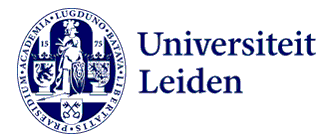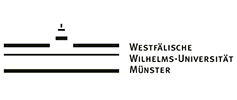Breathing Life into the Constitution: the Transformative Role of Courts to Give a Unique Identity to a Constitution
DOI:
https://doi.org/10.31078/consrev914Keywords:
Bundestreue, Directive Principles of state policy, Mabo, Native title, Socio-economic rights, Transformative constitutionalism, UbuntuAbstract
This paper reflects on the transformative role of courts to direct and change the pathway of the countries in which they serve. The paper commences with a brief discussion of what is meant by transformative constitutionalism. It takes issue with the proposition that newly created courts under post 1990-constitutions are more prone to constitutional transformation than courts under older constitutions. It shows how there have been examples where courts have transformed their societies throughout the history of courts. It also points out that courts must, regardless of their transformative role, demonstrate respect for the separation of powers since all organs of government must work together to effectively transform society. The paper then focuses on 4 case studies where courts have radically transformed their society, namely Germany through the use of Bundestreue to give content to the federal system; India where Directive Principles of state policy are used to give content to human rights; Australia where the Aboriginal native title had been recognised after 200 years of denial; and South Africa where Ubuntu is used as a life-giving word to effect social justice. The proposition put is that the transformative ability of a constitution and the judiciary serving under that constitution is not determined by the age of the constitution, but by the ability of its justices to determine disputes on the facts, in accordance with the law, and in reflection of the realities of the society in which they reside. The fault lines of society often rapture in litigation, and that is when and where judges may direct a nation into a new direction.
References
Barrie, G.N. “The Mabo-Decision and the “Discovery” of Native Title in Australia and Beyond.” In Litigating the Rights of Minorities and Indigenous Peoples in Domestic and International Courts, edited by B. De Villiers, J. Marko, F. Palermo, and S. Constantin, 7–51. Leiden: Brill, 2021.
Bartlett, R. Native Title in Australia. Australia: LexisNexis Butterworths, 2020.
Baxi, U. “Preliminary Note on Transformative Constitutionalism.” In Transformative Constitutionalism: Comparing the Apex Courts of Brazil, Indian and South Africa, edited by O. Vilhena, U. Baxi, and F. Viljoen, 19–47. Pretoria: Pretoria University Law Press, 2013.
Baxter, L.G. “Apartheid and the South African Judiciary.” Duke Law Magazine 5 (1987): 9–15.Bennett, T.W. “Ubuntu: An African Equity.” Potchefstroom Electronic Law Journal 14 (2011): 30–61.
Benz, A. “From Joint Decision Traps to Over-Regulated Federalism.” In German Federalism in Transition: Reforms in a Consensual State, edited by C. Rowe and W. Jacoby, 67–83. London: Routledge, 2010.
Blackstone, W. Commentaries on the Laws of England. Oxford: Clarendon Press, 1765.
Brown v. Board of Education, 347 U.S. 483 (1954) (SC 1954).
Budlender, G. “The Role of the Courts in Achieving the Transformative Potential of Socio-Economic Rights.” ESR Review 8, no.1 (2007): 9–12, https://hdl. handle.net/10520/AJA1684260X_318.
Burgess, M. Comparative Federalism: Theory and Practice. London: Routledge, 2006.
BVerfGE 1 56. BVerfGE 1 56 (n.d.).
BVerfGE 1, 117. BVerfGE 1, 117 (n.d.).
BVerfGE 1 299. BVerfGE 1, 299 (n.d.).
Chandra Bhawan Boarding and Lodging Bangalore v The State of Mysore 1970 SCR 600 (1970).
Chaundri, A.S. Constitutional Rights and Limitations. New Delhi: Wadhwa, 1955.
Constitutional Assembly. “Constituent Assembly Debates (CAD) Vol. 5,” 1947. https://www.constitutionofindia.net/constitution_assembly_debates/ volume/5.
Couso, J.A. “The Changing Role of Law and Courts in Latin America: From an Obstacle to Social Change to a Tool of Social Equity.” In Courts and Social Transformation in New Democracies, edited by R. Gargarella, P. Domingo, and T. Roux, 61–82. Hampshire: Ashgate, 2006.
De Villiers, B. Budestreue: The Soul of an Intergovernmental Partnership. Johannesburg: Konrad Adenauer Foundation, 1995.De Villiers. B. “Directive Principles of State Policy and Fundamental Rights: The Indian Experience.” South African Journal on Human Rights 8, no. 1 (1992): 29–49, https://doi.org/10.1080/02587203.1992.1182785.
De Villiers, B. “Does a Constitution Have a Soul? The Role of Bundestreue in Germany and Ubuntu in South Africa to Give Life and Identity to a Constitutional Text.” In Navigating the Unknown – Essays on Selected Case Studies about the Rights of Minorities, 163–214. Leiden: Brill, 2022, https:// doi.org/10.1163/9789004512115_007.
De Villiers. B. “Intergovernmental Relations: Bundestreue and the Duty to Co- Operate from a German Perspective.” South African Public Law 14 (1994): 430–39.
De Villiers, B. “Social and Economic Rights.” In Rights and Constitutionalism: The New South African Legal Order, edited by D. Van Wyk, J. Dugard, B. De Villiers, and D. Davis, 599–628. Cape Town: Juta, 1994.
De Villiers, B. “Socio-Economic Rights in a New Constitution: Critical Evaluation of the Recommendations of the South African Law Commission.” Journal of South African Law, 1992, 421–36.
De Villiers, B. “The Duty on Organs of State to Cooperate: Bundestreue, Cooperative Government and the Supply of Electricity in a Culture of Non- Payment.” Journal of South African Law, 2019, 605–18, https://hdl.handle. net/10520/EJC-16f185a93f.
De Villiers, B. “Using Control over Access to Land to Achieve Self-Government (of Some Sort): Reflecting on the Experiences of Aboriginal People with the Right to Negotiate in Australia.” In Navigating the Unknown – Essays on Selected Case Studies about the Rights of Minorities, 104–37. Leiden: Brill, 2022.
De Villiers, B., and J. Sindane. Cooperative Government – The Oil of the Engine. Johannesburg: Konrad Adenauer Foundation, 2011.
Dugard, J. “Testing the Transformative Premise of the South African Constitutional Court: A Comparison of High Courts, Supreme Court of Appeal and Constitutional Court Socio-Economic Rights Decisions, 1994- 2015.” International Journal of Human Rights 20 (2016): 1132–69.
English, R. “Ubuntu: The Quest for an Indigenous Jurisprudence.” South African Journal on Human Rights 7 (1996): 641–48.
Eveready Flashlight v. Labour Court AIR 1962 All 497 (1962).
F.N. Balsara v. Bombay 1959 Bom 17 (1959).
Gargarella, R. “Theories of Democracy, the Judiciary and Social Rights.” In Courts and Social Transformation in New Democracies, edited by R. Gargarella, P. Domingo, and T. Roux, 13–34. Hampshire: Ashgate, 2006.
Gargarella, R., P. Domingo, and T. Roux. “Courts, Rights and Social Transformation: Concluding Reflections.” In Courts and Social Transformation in New Democracies, edited by R. Gargarella, P. Domingo, and T. Roux, 255–82. Hampshire: Ashgate, 2006.
“Gini Index (World Bank Estimate) South Africa.” Washington DC, World Bank, 2022. https://worldpopulationreview.com/country-rankings/gini-coefficient- by-country.
Government of the Republic of South Africa and Others v. Grootboom and Others (CCT11/00) [2000] ZACC 19; 2001 (1) SA 46; 2000 (11) BCLR 1169 (4 October 2000) (2000).
Hayawauadanrao Hoskot v. Maharashtra AIR 1978 SC 1548 (1978).
Jain, M.P. Indian Constitutional Law. New Delhi: LexisNexis Butterworths, 1978.
Kibet, E., and C. Fombad. “Transformative Constitutionalism and the Adjudication of Constitutional Rights in Africa.” African Human Rights Law Journal 17 (2017): 340–66.
Klare, K. “Legal Culture and Transformative Constitutionalism.” South African Journal on Human Rights, 1998, 146–88.
Klug, H. “Towards a Sociology of Constitutional Transformation: Understanding South Africa’s Post-Apartheid Constitutonal Order.” Legal Studies Research
Mabo v. Queensland (No 1) (1988) 166 CLR 186 (1988).
Mabo v. Queensland (No 2) [1992] HCA 23, (1992) 175 CLR 1 (1992).
Madras v. Champakam Dorairajan 1951 AIR SC 226 (1951).
Mangena, F. “Hunhu/Ubuntu in the Traditional Thought of Southern Africa.” Internet Encyclopedia of Philosophy, 2020. https://www.iep.utm.edu/hunhu/.
Mangu, A.M. “Xenophobia and Migration in Post-Apartheid South Africa: Myths and Realities.” African Journal of Democracy and Governance 6 (2019): 44–72.
Manolios, K. “Pacta Servanda Sunt v. Ubuntu.” Without Prejudice 18 (2018): 32–34.
Marbury v. Madison, 5 U.S. (1 Cranch) 137 (1803), (1803).
Markandan, K.C. Directive Principles of State Policy in the Indian Constitution. Jalandhar: ABS Publications, 1987.
Metz, T. “Reconciliation as the Aim of a Criminal Trial: Ubuntu’s Implications for Sentencing.” Constitutional Court Review 9 (2019): 113–34, https://doi. org/10.2989/CCR.2019.0005.
Milirrpum v. Nabalco Pty Ltd (1971) 17 FLR 141 (27 April 1971) Supreme Court (NT). (1971).
Minerva Mills Ltd v. Union of India AIR 1980 SC 1843 (1980).
Palermo, F., and S. Constantin. “Litigating Linguistic Rights of National Minorities in Central, Eastern and South-Eastern Europe.” In Litigating the Rights of Minorities and Indigenous Peoples in Domestic and International Courts, edited by B. De Villiers, J. Marko, F. Palermo, and S. Constantin, 179–218. Leiden: Brill, 2021.
Paper Series No. 1373 Wisconsin Law School, 2016. https://papers.ssrn.com/sol3/ papers.cfm?abstract_id=2729460.
Ready, K.J. “Fundamentalness of Fundamental Rights and Directive Pricinples of State Policy in the Indian Constitution.” Journal of the Indian Law Institute 22, no. 3 (1980): 399–407, https://www.jstor.org/stable/43950702.
Rodgers v. Irish Transport and General Workers Union 1978 WJSC-HC 922, [1978] ILRM 51 , [1978] 3 JIC 1501 (1978).
S v. Makwanyane 1995 3 SA 391 (CC) (1995).
Sachs, A. The Strange Alchemy of Life and Law. London: Oxford University Press, 2009.
Secretary Government Public Works v. Adoni Ginning Factory AIR 1959 AP 838 (1959).
Sharma, S.K. Justice and Social Order in India. New Delhi: Intellectual Pub. House, 1984.
Smend, R. “Ungeschriebenes Verfassungsrecht Im Monarchischen Bundestaat [Unwritten Constitutional Law in the Monarchical State].” In Festgabe Fur Otto Mayer: Zum 70. Geburtstag Dargebracht von Freunden, Verehrern Und Schulern. Tubingen: Mohr, 1916.
Speaker of the Senate and Another v. Attorney-General and Another [2013] eKLR par 51 (2013).
State of Bombay v. Balsara AIR 1951 SC 318 (1951).
State of Tamil Nadu v. L Abu Kavier Bai AIR 1984 SC 725 (1984).
Tomaselli, A., and F. Cittadino. “Land, Consultation and Participation Rights of Indigenous Peoples in the Recent Jurisdictions of the Inter-American Court of Human Rights: The Cases of Sarayaku v. Ecuador and Kalina and Lokono v. Suriname.” In Litigating the Rights of Minorities and Indigenous Peoples in Domestic and International Courts, edited by B. De Villiers, S. Constantin, F. Palermo, and J. Marko, 149–79. Leiden: Brill, 2021.
Tripathi, S.M. Fundamental Rights and Directive Principles in India. Hamburg: Anchor Acedemic Publishing, 2016.
Ubuntu Lexico. “Lexico,” 2020. https://www.lexico.com/definition/ubuntu.
Ugarte, P.S. “The Struggle for Rights and the Ius Constitutionale Commune.” In Transformative Constitutionalism in Latin America: The Emergence of a New Ius Commune, edited by A. Von Bogdandy, E. Gregor, M. Antoniazzi, and X. Soley, 67–84. London: Oxford University Press, 2017.
Von Bogdandy, A., E. Gregor, M. Antoniazzi, and X. Soley. “Ius Constitutionale Commune En America Latina: A Regional Approach to Transformative Constitutionalism.” MPIL Research Paper Series, Heidelberg, 2016.
Von Bogdandy, A., E. Gregor, M. Antoniazzi, and X. Soley, eds. Transformative Constitutionalism in Latin America: The Emergence of a New Ius Commune. London: Oxford University Press, 2017.
Wik Peoples v. The State of Queensland [1996] HCA 40, (1996) 187 CLR 1 (23 December 1996), High Court. (1996).
Zondo, R.M.M. “Judicial Commission of Inquiry into Allegations of State Capture, Corruption and Fraud in the Public Sector Including Organs of State.” Pretoria, Judicial Commission, 2022. https://www.statecapture.org.za/ site/files/announcements/649/Judicial_Commission_of_Inquiry_into_State_ Capture_Report_Part_3-1.pdf.
































































